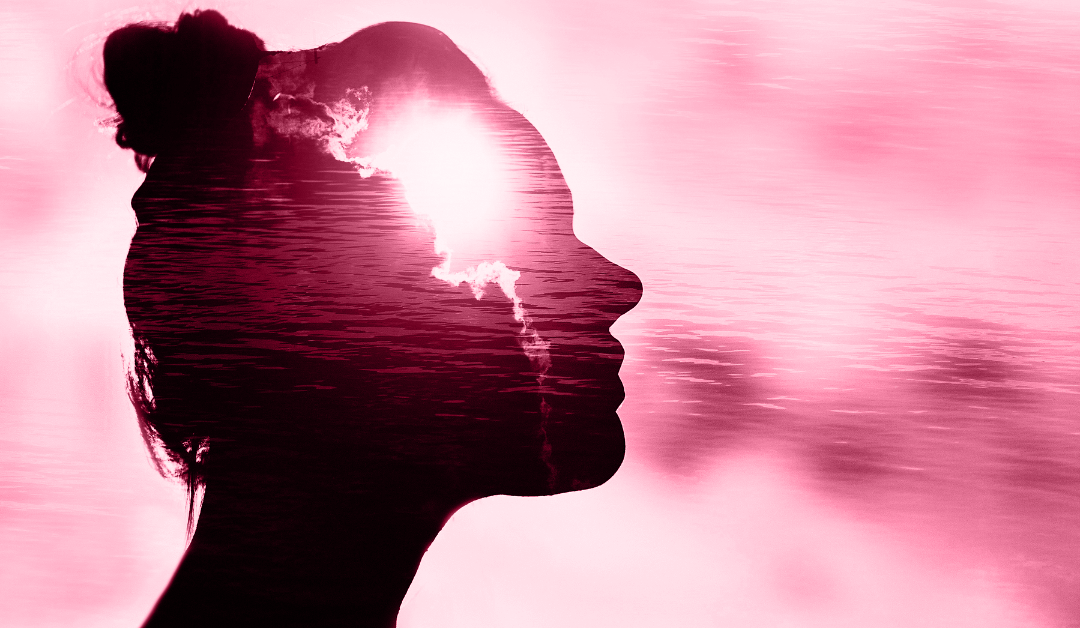Imagine, you always know what to do next. Imagine you trust this knowing because it feels good and then you act on it with confidence and ease. That’s what a life led by intuition is like. When you are tuned in, your next right step is inevitable.
Voice, image, feeling or action?
We often talk about a gut feeling or an inner voice. But what intuition actually looks, feels and sounds like is different for everyone. If it is a “voice”, intuition speaks to you through electrical impulses firing in your brain, aka thoughts. You might also interpret these impulses as images. Then you see your next right step in your mind.
Or maybe you have a good or a bad feeling about a decision. Have you ever done something before you knew what you were doing? Then intuition might manifest for you as spontaneous action. It can also be a combination of some or all of these depending on the situation. Intuition simply means that somehow or other you know exactly what the next right step is for you.
Following your intuition, means living in the flow with ease and clarity. When you know and trust this process, decisions are simple. No ruminating or worrying, no overthinking. You just confidently take the next right step.
Noise
Sounds amazing! So why don’t we all just live like that? We are trained into distrusting ourselves. It starts with our basic needs. When we are hungry we are told that we can only eat at special times. The training goes on in school when we are not allowed to use the bathroom whenever we want. Slowly and steadily we are taught to ignore the signals, to consider them irrelevant or even untrustworthy.
Why? If everyone did whatever they wanted, societies would break down. Right? That’s what we’re told. So we are trained into listening to others, doing what they think is right and making “the right” decisions. Right and wrong are, of course, defined by other people.
Over time we learn many different processes to drown out our intuition. We learn to overthink, worry, doubt ourselves and punish ourselves with guilt. We learn to care more about other people because for some reason we are supposed to be responsible for how they feel. So we put their needs first, become people-pleasers and cross our own boundaries.

Emotions turn into feelings
Our emotions try to warn us. Anger screams at us every time we cross a boundary. Fear tells us that something is very wrong. And sadness slows us down, trying to prevent us from taking action that isn’t right for us. But we are trained to demonize our protective emotions, push them away, ignore them and even medicate ourselves so we won’t feel them.
Our base lines for protective emotions rise. We practise thinking thoughts we learn from other people to combine them into emotion cocktails that result in feelings, like guilt, pride, and shame. We are trained into these mechanisms to stay in line, meaning do what other people believe is the right thing. Lead the lives society tells us is safe for us.
Over time, we practice these mechanisms until they become habits. Then we keep on going because everyone behaves like this, right? The ones who don’t, are clearly outsiders. They might even get punished for making different choices. Eventually, we forget that the thought patterns our minds run through automatically were once learned, that the high fear, anger and sadness levels accumulated over time, and that our actions are really just habits. We drown out our intuition automatically.
Tuning in
Here’s the great news: Intuition never goes away. The voice, the images, the gut feelings and the spontaneous fun actions are always right there. When you are ready to tune back in to yourself, intuition is waiting for you. So how do you do that? How do you strengthen the connection once more?
First, understand that intuition always tells you the next right step, all day every day. We tend to want to use it for the big decisions in life. Should I take that job offer? Where should I move to next? Should I go out with this person? Should we get married today? And so on.
But actually intuition means knowing what to do in any given moment. It means always knowing exactly your next right step, no matter how small it is. So when you want to tune in, the easiest way to do so is to ask yourself “What do I do next?” And then notice, accept and do whatever comes up, no matter what the answer is.
Your intuition might tell you to use the bathroom. Or to make yourself a cup of tea. Or to sit outside. It might tell you to write a blog post or try a new recipe. It might tell you to apply for a new job or look for flights for your holiday. Whatever it is, is the next right step for you.
Clarity and confidence
Intuition is your friend. Imagine that you are both sitting in a busy café at rush hour. The noise is everywhere drowning out your friend’s words. The more familiar you are with their voice, the easier it becomes to hear them. So the key is practice.
Notice what form your intuition comes in. Is it a voice, images, a feeling or spontaneous actions? Is it a combination of some or all of these options? Listen to and act on your intuition as often as possible, no matter how big or small the next right step is. The more you practice, the clearer the signal becomes. A life of clarity and confidence is within your reach. Start tuning in to your intuition today.
Want more? Read the next blog post: How and Why Intuition Works. And if you prefer a more guided approach to tuning in, take a look at the course Intuition for Beginners.
